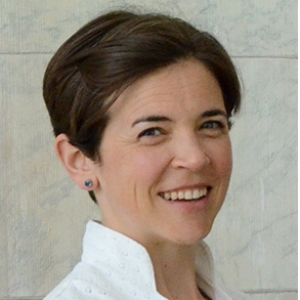Sarah Stroup, Ph.D.
Sstroup@middlebury.edu
Full Professor
Middlebury College

Year of PhD: 2008
Country: United States (Vermont)
About Me:
I am a professor of political science at Middlebury College and director of the KWD Collaborative in Conflict Transformation. My research focuses on international non-governmental organizations (INGOs), humanitarian relief, human rights, and democracy promotion. I teach courses on non-state actors, international organizations, humanitarian relief, and international political economy.
Research Interests
Development
NGOs
Foreign Aid
Human Rights
Humanitarian Aid
Countries of Interest
United States
United Kingdom
France
Publications:
Books Written:
Not all international nongovernmental organizations (INGOs) are created equal, Some have emerged as "leading INGOs" that command deference from various powerful audiences and are well-positioned to influence the practices of states, corporations, and other INGOs. Yet Sarah S. Stroup and Wendy H. Wong make a strong case for the tenuous nature of this position: in order to retain their authority, INGOs such as Greenpeace, Oxfam, and Amnesty International refrain from expressing radical opinions that severely damage their long-term reputation. Stroup and Wong contend such INGOs must constantly adjust their behavior to maintain a delicate equilibrium that preserves their status. Activists, scholars, and students seeking to understand how international organizations garner and conserve power—and how this affects their ability to fulfill their stated missions—will find much of value in The Authority Trap. The authors use case studies that illuminate how INGOs are received by three main audiences: NGO peers, state policymakers, and corporations. In the end, the authors argue, the more authority an INGO has, the more constrained is its ability to affect the conduct of world politics.
In Borders among Activists, Sarah S. Stroup challenges the notion that political activism has gone beyond borders and created a global or transnational civil society. Instead, at the most globally active, purportedly cosmopolitan groups in the world—international nongovernmental organizations (INGOs)—organizational practices are deeply tied to national environments, creating great diversity in the way these groups organize themselves, engage in advocacy, and deliver services. Stroup offers detailed profiles of these "varieties of activism" in the United States, Britain, and France. These three countries are the most popular bases for INGOs, but each provides a very different environment for charitable organizations due to differences in legal regulations, political opportunities, resources, and patterns of social networks. Stroup's comparisons of leading American, British, and French INGOs—Care, Oxfam, Médecins sans Frontières, Human Rights Watch, Amnesty International, and FIDH—reveal strong national patterns in INGO practices, including advocacy, fund-raising, and professionalization. These differences are quite pronounced among INGOs in the humanitarian relief sector, and are observable, though less marked, among human rights INGOs. Stroup finds that national origin helps account for variation in the "transnational advocacy networks" that have received so much attention in international relations. For practitioners, national origin offers an alternative explanation for the frequently lamented failures of INGOs in the field: INGOs are not inherently dysfunctional, but instead remain disconnected because of their strong roots in very different national environments.
Other:
How do you facilitate dialogue on a campus divided by a recent controversial speaker? A student leader and I worked together to design a series of experimental "deliberation cafes" to understand the conditions under which people will listen to understand one another. This is a problem for many college campuses and we suggest concrete steps for facilitating difficult conversations. https://www.brown.edu/academics/college/swearer/sites/academics-college-swearer/files/Re-imagining-a-21s-Century-Democracy-Final-Journal.pdf
The Trump administration is affecting refugee politics from small towns to the world stage, and activists have a long road ahead.
Media Appearances:
Radio Appearances:
This story describes a college course, co-taught by Sarah Stroup, in which students learned about the ethics and practices of philanthropy and then gave away $100,000.
Blog Posts:
Sarah Stroup and Wendy Wong describe their recent book in a short, 4-minute video.
Other:
A talk on how we argue about civility for a local lecture series.